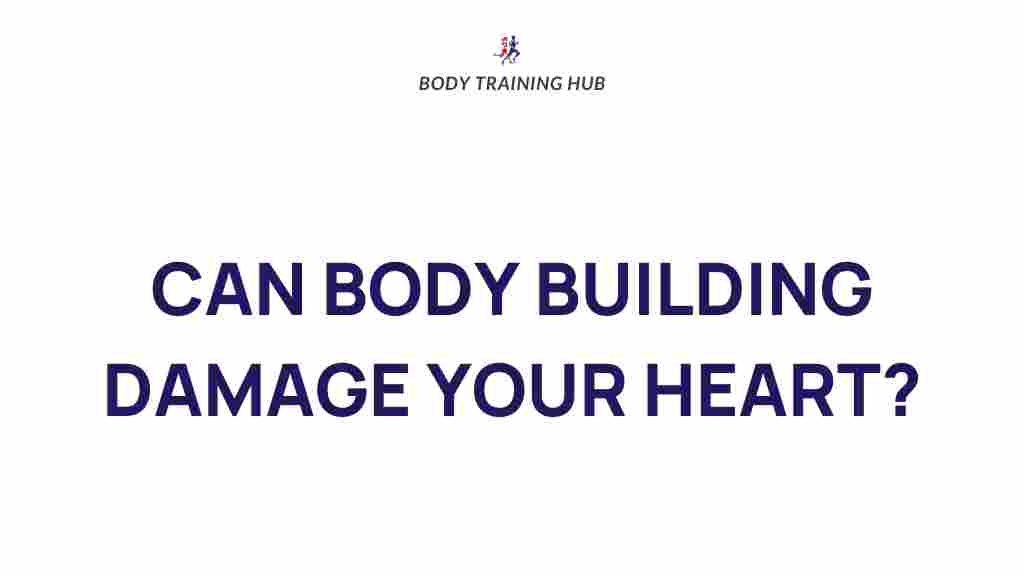Unveiling the Truth: Can Bodybuilding Impact Heart Health?
Bodybuilding is often associated with muscle gain, aesthetics, and improved physical performance. However, many people wonder about its implications for heart health. Can intense weightlifting and bodybuilding exercises benefit cardiovascular health, or do they pose risks? In this article, we will delve into the intricate relationship between bodybuilding and heart health, exploring myths, benefits, risks, and the role of exercise in maintaining cardiovascular well-being.
Understanding Bodybuilding and Heart Health
Bodybuilding is a form of exercise that emphasizes muscle hypertrophy through resistance training. It involves lifting weights to achieve a higher level of physical fitness and muscular endurance. On the other hand, heart health refers to the overall health of the heart and blood vessels, which is crucial for delivering oxygen and nutrients throughout the body.
The importance of cardiovascular fitness cannot be overstated. A strong cardiovascular system reduces the risk of heart disease, hypertension, and other related conditions. With this in mind, how does bodybuilding fit into the picture?
The Benefits of Bodybuilding for Heart Health
While bodybuilding is primarily focused on building muscle, it can also have several positive effects on heart health:
- Improved Heart Efficiency: Weightlifting can enhance the efficiency of the cardiovascular system. As muscles grow stronger, they require more oxygen, prompting the heart to pump more effectively.
- Increased Metabolism: Bodybuilding boosts metabolism, which can help maintain a healthy weight. Obesity is a significant risk factor for heart disease.
- Lower Blood Pressure: Regular exercise, including weightlifting, has been shown to lower blood pressure levels, which is beneficial for cardiovascular health.
- Enhanced Cholesterol Levels: Bodybuilding can improve cholesterol profiles by increasing HDL (good cholesterol) and decreasing LDL (bad cholesterol).
- Stress Reduction: Physical activity, including bodybuilding, can reduce stress and anxiety, which are known risk factors for heart disease.
Common Myths About Bodybuilding and Heart Health
Despite the benefits, several myths persist regarding bodybuilding and its impact on heart health. Let’s dispel some of these misconceptions:
- Myth 1: Bodybuilding Is Bad for Your Heart: Many believe that heavy lifting can strain the heart. However, when done correctly, bodybuilding can improve heart health.
- Myth 2: Bodybuilders Have Poor Cardiovascular Endurance: While it’s true that bodybuilders focus on strength, many incorporate cardiovascular training to maintain a balanced fitness regimen.
- Myth 3: Weightlifting Is Only for Muscle Gain: Weightlifting is also an effective way to improve cardiovascular health and overall fitness when combined with aerobic exercises.
Assessing the Risks of Bodybuilding for Heart Health
While bodybuilding offers numerous benefits, it’s essential to recognize potential risks:
- Overexertion: Lifting weights without proper technique or overloading can lead to cardiovascular strain. It’s crucial to follow a structured program.
- Supplement Misuse: Some bodybuilders may use performance-enhancing drugs that can negatively impact heart health.
- Neglecting Cardiovascular Exercise: Focusing solely on weightlifting can lead to poor cardiovascular fitness. A balanced approach is essential.
Developing a Balanced Fitness Regimen
To ensure that bodybuilding supports heart health, consider the following guidelines:
- Incorporate Cardiovascular Exercise: Aim for at least 150 minutes of moderate-intensity cardio each week, alongside your weightlifting routine.
- Monitor Intensity: Use a heart rate monitor to ensure you’re exercising within a safe range and not overexerting yourself.
- Focus on Form: Prioritize proper lifting techniques to avoid injuries and strain on the heart.
- Stay Hydrated: Dehydration can strain the heart, so drink plenty of water before, during, and after workouts.
Step-by-Step Process for Safe Bodybuilding
To safely integrate bodybuilding into your fitness routine while prioritizing heart health, follow this step-by-step process:
- Consult a Healthcare Provider: Before starting any new exercise program, especially if you have pre-existing heart conditions, consult your doctor.
- Set Realistic Goals: Establish achievable fitness goals that include both strength and cardiovascular components.
- Choose a Program: Select a bodybuilding program that emphasizes balanced training. Consider programs that include both weightlifting and cardio.
- Warm-Up and Cool Down: Always begin with a warm-up and end with a cool-down to protect your heart and muscles.
- Progress Gradually: Increase weight and intensity gradually to avoid injuries and cardiovascular strain.
- Listen to Your Body: If you experience any unusual symptoms such as chest pain or excessive fatigue, seek medical attention.
Troubleshooting Tips for Bodybuilders
If you’re experiencing challenges while balancing bodybuilding and heart health, consider these troubleshooting tips:
- Fatigue: Ensure you are getting adequate rest and recovery. Overtraining can lead to fatigue, affecting heart health.
- Plateaus: If your progress stalls, consider varying your workout routine to engage different muscle groups and improve cardiovascular fitness.
- Nutrition: Focus on a balanced diet that supports both muscle growth and heart health. Foods rich in omega-3 fatty acids, fiber, and antioxidants are beneficial.
The Role of Nutrition in Supporting Heart Health and Bodybuilding
Nutrition plays a crucial role in both bodybuilding and heart health. Here’s how to optimize your diet:
- Lean Proteins: Include sources such as chicken, turkey, fish, tofu, and legumes to support muscle repair and growth.
- Healthy Fats: Incorporate avocados, nuts, and olive oil, which contribute to heart health.
- Whole Grains: Choose whole grains like brown rice, quinoa, and whole wheat bread for sustained energy release.
- Fruits and Vegetables: Aim for a variety of colorful fruits and vegetables to provide essential vitamins and antioxidants.
For more information on nutrition for heart health, visit this resource.
Conclusion
In conclusion, bodybuilding can positively impact heart health when approached mindfully. By understanding the benefits, dispelling myths, recognizing risks, and following a balanced fitness and nutrition regimen, you can enjoy the advantages of bodybuilding while protecting your cardiovascular system. Remember, the key lies in moderation, proper technique, and a holistic approach to fitness. As you embark on your bodybuilding journey, prioritize your heart health, and enjoy the process of getting stronger and fitter!
For more insights on fitness, check out our detailed articles on fitness and exercise.
This article is in the category Myths & Facts and created by BodyTraining Team
